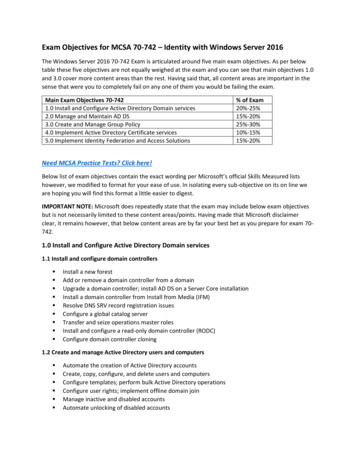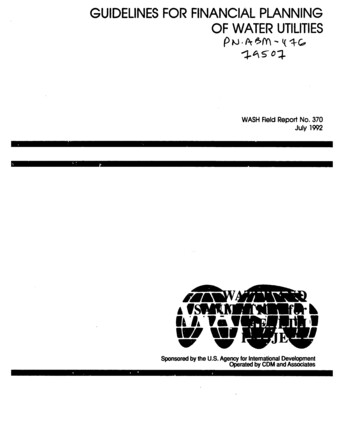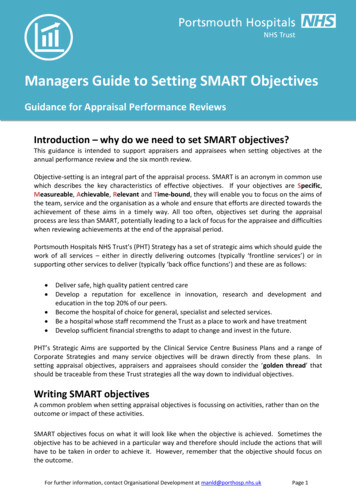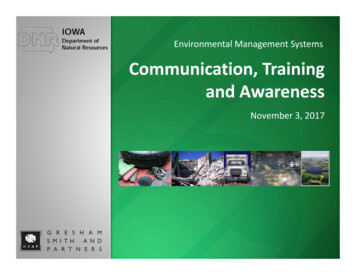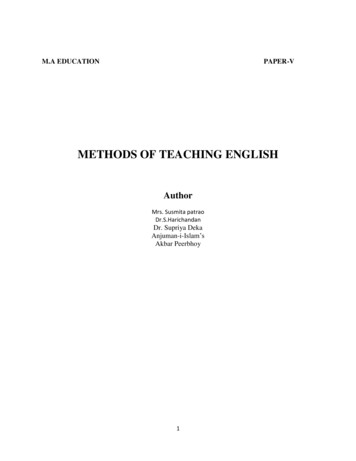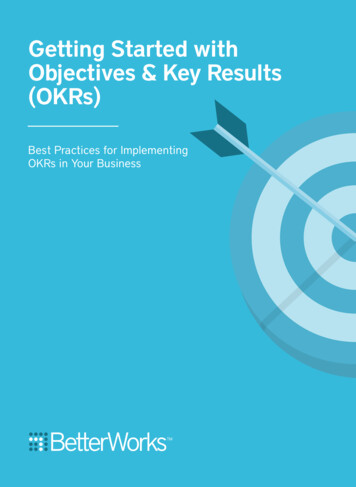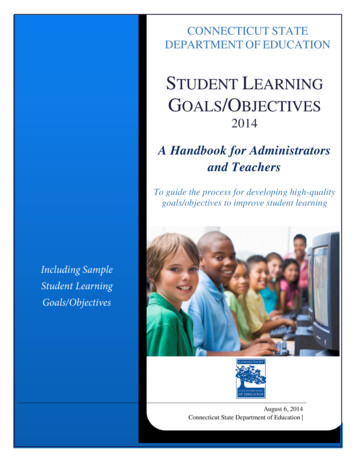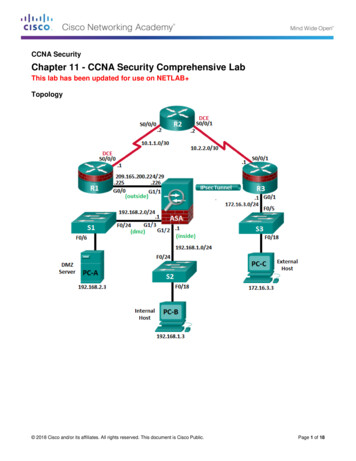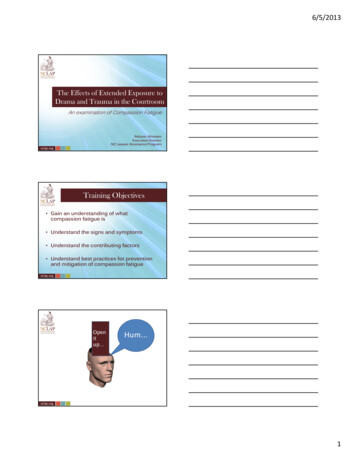
Transcription
6/5/2013The Effects of Extended Exposure toDrama and Trauma in the CourtroomAn examination of Compassion FatigueRobynn MoraitesExecutive DirectorNC Lawyer Assistance ProgramTraining Objectives Gain an understanding of whatcompassion fatigue is Understand the signs and symptoms Understand the contributing factors Understand best practices for preventionand mitigation of compassion fatigueOpenitup Hum.1
6/5/2013Lawyers are Human BeingsFill in the blanks The world is a Life is I amplace.as a human being. I want to changeabout my job. I want to change Most often I feelabout myself.2
6/5/2013Compassion Fatigue Defined The cumulative physical/emotional/psychological effects ofcontinual exposure to traumatic ordistressing stories/events When working in a helping capacity Where demands outweigh resourcesDoing Too much For too long With too few resources And working with the “biguglies” in lifeProfessional Qualityof By Beth Hudnall Stamm PhD, et. alwww.proqol.comSecondaryTrauma3
6/5/2013Factors that Influence a Person’s Vulnerability toCompassion FatigueIndividualFactorsLife SituationFactorsOrganizationalFactorsCompassion Fatigue Advisory. Any person regardless of race, gender,ethnicity, age, occupation . develop thiscondition Doesn’t imply weakness, just “human-ness” Is more about “dis-ease” than disease.DisabledTop of yourgameTypical Attorney Workload4
6/5/2013Workload: Look & Feel Familiar?Statistically significant correlation with CFIndividual Vulnerabilitiesand Life Situations History of or current traumaHealth problemsAlcohol or drug use/troublesPoor job performanceDepression or anxietyGeneric life sFinancesdotdotdotDotDotdot5
6/5/2013Organizational Stressors Unrealistic expectationsUnrecognized accomplishmentsBudget cutsEliminating positionsPerforming multiple jobsPersonalities and politicsIntense competition (within andwithout)Client Expectations/Stressors UnrealisticWant it nowUnhappy, sad, mad, frustratedStress from the pressureStress from the difficult material beingreviewed and the workload yetexpected to appear and be completelyunaffected by it (i.e. not be human)Competitive Nature of Stress6
6/5/2013Lawyering - an At Risk ProfessionSeems to imply that it is hard. 1990 Johns Hopkins study ranked lawyersfirst in experiencing depression job dissatisfaction data doubled from 1984data 44% of lawyers feel they don’t have enoughtime with families 54 % feel they don’t have enough time forthemselves Studies show higher incidence of MI andAlcohol and other Drug problems comparedto the general populationBalancing Act for Lawyers Pessimism works in the professionalworld but not in the interpersonal world7
6/5/2013Symptoms Reported Intrusive thoughtsAnger/anxiety/fearSleep disturbanceFatigueLoss of Appetite Loss of empathyLoss of faith inhumanitySense of isolationfrom othersPhysical complaintsSource: Vrklevksi et sl. (2008) andLevin et al. (2003) and Jaffe et al.(2006)Role of Mirror Neurons in the BrainEmpathy Experience the experiences of someone else(Shane, 2008) Enduring those same experiences andemotions (Lydialyle Gibson) Empathy is involuntary: a shared emotionthis is hardwired into the brain (L. Gibson) Human beings who spend time with otherhuman beings who are empathetic tend tofeel better8
6/5/2013Brain Chemistry Reptilian Brain (instincts) Limbic Brain (emotion, memory) Frontal Lobe (reason) These work together, while we think,something else is going on.9
6/5/2013The Fight or Flight ResponseSensory lusFight or FlightNervous System Takes OffStress: Portrait of a KillerThis movie shedswonderful insight intothe propagation of illnessin today's society via theinner workings of thehuman stress response.Only 50 minutes long.Available on Netflix.Impact on Primary Assumptions The World is Benevolent The World is Meaningful The Self is WorthySource: Bulman, Shattered Assumptions10
6/5/2013Impact of Continual Exposure Shattered assumptions about basic beliefs inour world for safety, security, trust, justice The world is not a good place, there is nomeaning; pessimism, depression, irritability,sickness Heightened awareness of vulnerability andthe fragility of life-increased anxiety/anger/ One Attorney Says “I think this happens to everyone whetherthey admit or not or show it or not. It isinevitable with that kind of caseload thatone will at least at times go bonkers. Thiswears on all of us and on some of us morethan others. We see colleagues severelyaffected all the time. I think the practiceleaves scars. Some make it better thanothers, obviously, but everyone suffers ”--criminal lawyerSource: WisLAP Program permission grantedZimmerman, (2002). Trauma and Judges. Canadian Bar Association Annual Meeting11
6/5/2013Impact on Lawyers Powerlessness Indecisive/Anxious Alienate from othersFill in the blanks The world is aplace. Life is. I amas a human being. I want to changeabout my job. I want to change Most often I feelabout myself.So slow, is it even moving?12
6/5/2013That which is to give light mustendure burning .Victor FranklRather slow and insidious .then increases then overwhelming .BurningUncomfortableOverwhelmingSo what happens?13
6/5/2013Visible Results Strong correlation with what is known as“Disruptive Behavior”– Intimidation, Anger and Lashing Out At opposing counsel At support staff At associates “Kick the dog” syndrome Spouse/partner and kids take the brunt ofthe frustration Enter the grievance and discipline processMost common client complaints &grievance notices Lack of communication Apathy (improper advocacy) Lack of Diligence i.e. “Ijust don’t care anymore.”Uh-OhGrievance Letter14
6/5/2013The Two Big UgliesWorkload/HoursWho most at risk? Criminal or family law attorneys/judges High caseloads; long work hours High % exposure to graphic evidence, 911tapes, photos, videotapes, victim impactstatements Serving clients who have high levels ofdistress Little if any education on the subject of CF Little support from peers-isolationThere is Hope for all of us 15
6/5/2013Mitigating Compassion Fatiguefor Lawyers Individual Professional Societal Awareness, Balance and Connection(Jaffe, et al.)The things that cause the thingsthat cause the things .Organizational Contributions toCompassion FatigueHeavy caseloads-Long HoursInefficient administrationExcessive paperworkInadequate resources to meet thedemands Lack of supportive supervision Source: Levin et al. (2003), Osofsky et al. (2008)16
6/5/2013Talking and ConnectionsHelp the BrainWhat Individuals Can DoUnderstanding TriggersEmotional triggers are events or personality typesthat cause an intense emotional response.Understanding Triggers Different for each one of us Examples:– Double Bind– Abuse of vulnerable populations– Disrespect fromcolleagues/judges/clients/people– Unfair, unjust realities of life and the system– The line at your door17
6/5/2013Understanding Triggers What are yours?Typical Responses to Triggers Anger,Depression, withdawalAnxiety; work harderStop caring, looks like burnout but is really a defensemechanismPhysical complaints, headaches, stomach problems,back pain, fatigueCoping mechanisms that hurt more than helpResearch-based suggestions for improving mood,increasing life satisfaction and mitigating stressRecognize the risks for yourselfFind a way to debrief distressing materialWork on self awareness every dayTake an inventory of how balanced yourlife is-be intentional about balancing it out Evaluate your tension reducing behaviors Be intentional about protecting yourself 18
6/5/2013How Many are You Spinning? Becoming Happier Spin fewer plates:–Squeeze in less.Becoming Happier It is the obvious:SleepExerciseEat19
6/5/2013Becoming Happier Don’t deny negative emotions [fear,sadness, anxiety] – move toward themand accept them. Identify and speak with a close person(or people) who you trust to share yourinternal experience.Becoming Happier It is not state of status or bank account –“state of mind” is what matters most. While we may be paid well, money does nottrigger the mirror neuron stimulus we (allhumans) need to translate into betteremotional health in our bodies and psyches. What do you do at the end of the day totransition out of work? If nothing, admit that.Then change it.Becoming Happier Intersect pleasure and meaning interestsare central. Express Gratitude Try making a gratitude list every morning of 3things you are grateful for. Do it for a fewmonths and see what you notice. It willchange your life.Adapted from T. Ben-Shahar20
6/5/2013If you need to reach us:Robynn MoraitesExecutive Director704-892-5699robynnmoraites@gmail.comEd WardRaleigh and Areas East919-828-6425eward@ncbar.govCathy KillianCharlotte and Areas West704-910-2310cathy.d.killian@gmail.comTowanda GarnerPiedmont Triad Area919-719-9290tgarner@ncbar.govThank you!21
If you need to reach us: Ed Ward Raleigh and Areas East 919-828-6425 eward@ncbar.gov Towanda Garner Piedmont Triad Area 919-719-9290 tgarner@ncbar.gov Robynn Moraites Executive Director 704-892-5699 robynnmoraites@gmail.com Cathy Killian Charlotte and Areas West 704-910-2310 cathy.d.killian@gmail.com Thank you!

